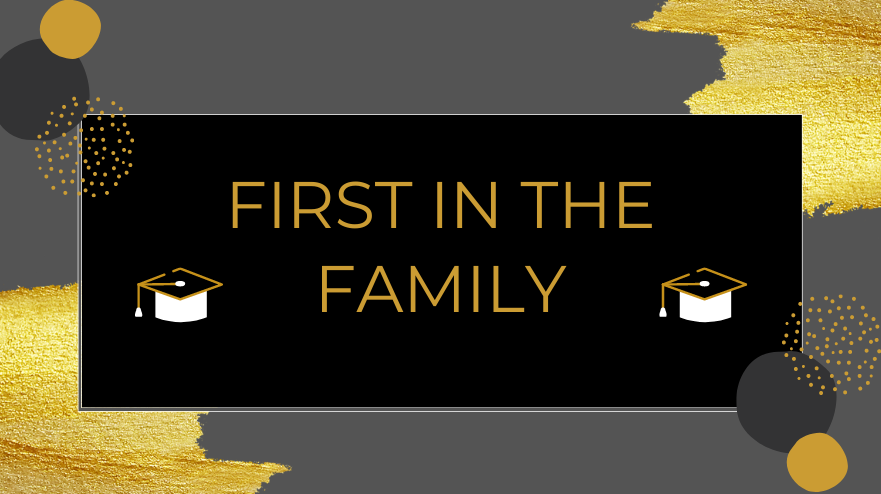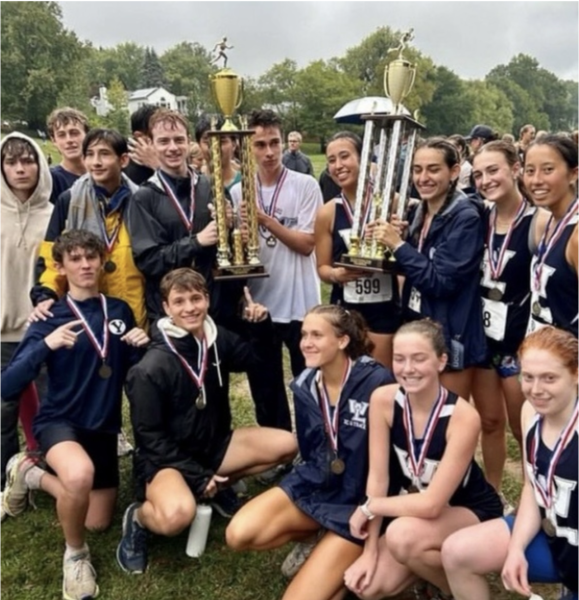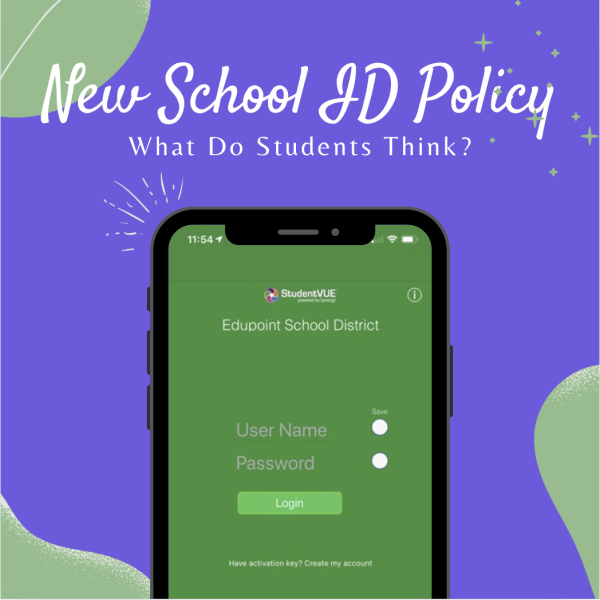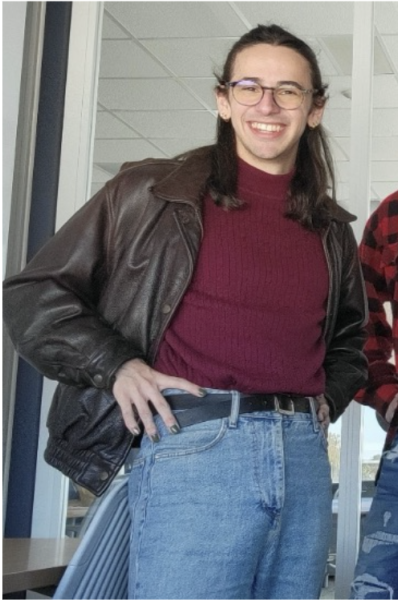First in the family
First-generation college students share their stories and plans for the future.
Test-optional policies, additional essays and navigating the sea of college admissions through a screen were all factors that made the application cycle for the class of 2021 an unmatched experience. Yet, students made the most of what they could. They earned scholarships, their dreams of going to certain colleges came true and they saw the benefits of the time and effort they put into their school work over the past four years. Several seniors will also be the first in their family to attend college, which is a journey they are all looking forward to.
Senior Mahia Rahman will be attending Harvard University in the fall and plans to explore classes related to computer science, urban planning and social justice. She is excited to join a community of other first-generation college students, which is part of the reason why she chose Harvard over her other options.
“I was even able to talk to a first-generation student there — I think she’s a senior next year — and she told me how amazing the First-Generation [and/or] Low-Income (FGLI) community is, and how supportive they are,” Rahman said. “It was really wonderful to hear about the comfort people of my background feel at Harvard.”
Although Rahman finds it easier to relax now that she has committed to college, she placed a lot of pressure on herself throughout high school.
“As a first-gen student, you have so much more responsibility and pressure to succeed because your parents literally came from another country to give you a better future, so if you don’t succeed, then you kind of feel like your parents wasted their time on you, which sounds horrible, but that’s actually how I felt,” Rahman said. “But I have hard work on my side, and I think that’s how I was able to get this far.”
While education and doing well in classes are still important to her, Rahman hopes to prioritize her well-being in college and further develop her identity.
“[Another main thing I want to do] is live like a teenager because I don’t think I got the chance to do that up until now, and I would really love to learn more about my dislikes and create valuable relationships,” Rahman said.
Rahman also appreciates how being a first-generation college student has added to her and others students’ individuality.
“We can very easily connect with other first-gen students, and I feel like a lot of first-gen students have a lot of empathy because [we] know [we’ve] experienced quite a lot of barriers,” Rahman said. “I think a lot of first-gen students I’ve met are some of the most hardworking, wonderful students out there, and you know, what they have to go through — it sucks. But that challenge adds so much to their characters, to resiliency. They truly are beautiful, amazing people.”
For senior Kimberly Peche, college holds many unknowns, but presents the opportunity to gain more independence and explore new subjects of study. Peche will be attending Virginia Commonwealth University (VCU) later this year, which she chose because of their scholarship offers and forensics department.
“I feel like [forensics is] a really broad field — you can go more medical or you can go more psychological, or you can go more laboratory-wise,” Peche said. “I feel like it’s just an area that you could never be bored in, and that’s kind of important to me. I never want to feel bored in something that I do.”
Peche has always known that she wanted to attend college.
“Since I was little, [I wanted to go to college] because I feel like that’s what’s expected of you, just because we’re living in the United States,” Peche said. “And to be fair, I agree that, you know, a bachelor’s degree does earn you more money.”
Noting that this year’s college application cycle had many unprecedented moments, Peche said that she wished more information about filling out forms like the Free Application for Federal Student Aid (FAFSA) and the Common Application itself had been more readily available to first-generation college students throughout the process.
“A lot of people, if they do grow up in the United States and their parents have gone through the college process, there’s going to be a lot of common knowledge like, they’re going to know they have to do the FAFSA … and again, for me, the common knowledge that you’re going to put into American students isn’t really common knowledge to a good chunk of them,” Peche said.
As for the next four years, Peche plans to develop some habits that will help her feel more comfortable living away from home.
“I really want to try the best I can to live over there and survive, like getting a job and trying to cook … and I’m hoping not to waste a lot of money over there,” Peche said. “I hope that I get to experience things by myself, like living by myself or having to solve problems by myself.”
Peche takes pride in being a first-generation college student and belonging to a group of people bringing more diversity to college campuses across the country.
“Not all first-gen students are people of color or are immigrants — they just happen to be the first people in their family to get to college, and that’s probably because they’re not as high-income as others,” Peche said. “And maybe that does offer more perspective to what most of the country deals with in our everyday, day-to-day life.”
Senior Abel Geleta also prioritized diversity when applying to colleges. Geleta will be attending Yale University in the fall and intends to study economics and political science, and also wants to take several computer science courses throughout his time at Yale. He said that meeting other students from various backgrounds will help him feel supported by and engaged with the student body, which Yale’s residential college system helps promote.
“Being at a predominantly white institution is definitely something that I was looking into, you know, making sure that once I arrived there, I’d be able to thrive academically, socially, mentally and all that,” Geleta said. “Wherever I go, I’m always trying to obtain the [greatest] amount of experiences and goals overall, so I’ll definitely look to do that there and interact with the community, the students, the faculty [and] the staff.”
Geleta said that the programs Yale has put together to welcome incoming first-generation and/or low-income students to the campus have been beneficial because they have enabled him and other students to form connections early on.
“It’s helpful in the fact that the next four years are really essential to relationships that might be lifelong friendships,” Geleta said.
Throughout high school, Geleta was determined to get into college and attend the school which granted him the greatest number of opportunities. He has appreciated the resources Arlington Public Schools (APS) has provided throughout the past four years.
“I always [took] it on my part to handle those tasks of making sure I [was doing] well in school, being involved and preparing myself to reach the point of attending [college],” Geleta said. “I always knew that going to one of the Arlington Public Schools was really beneficial for my trajectory when it came to going to college and trying to exploit that opportunity to the fullest extent.”
Geleta is grateful for APS’s supportive community, and to strengthen it, he said that it is important for non first-generation students to be aware of and compassionate toward the challenges that their first-generation peers may have faced.
“I think people should just be sensitive to the circumstances that those students might come from besides just being the first-generation in their family to go to college — they definitely have other things that might be hindering [them] or making that accomplishment even more challenging,” Geleta said.
In the future, Geleta hopes that more first-generation college students will be attending schools across the country.
“Being a first-generation [college] student isn’t something very daunting and impossible to do, especially with just being in this country where a lot of colleges are looking to gain diversity and bring people, cultural diversity [to their campuses] and have unique classes,” Geleta said. “[College] is definitely beneficial to how you develop your personality and how you encounter challenges in life.”











